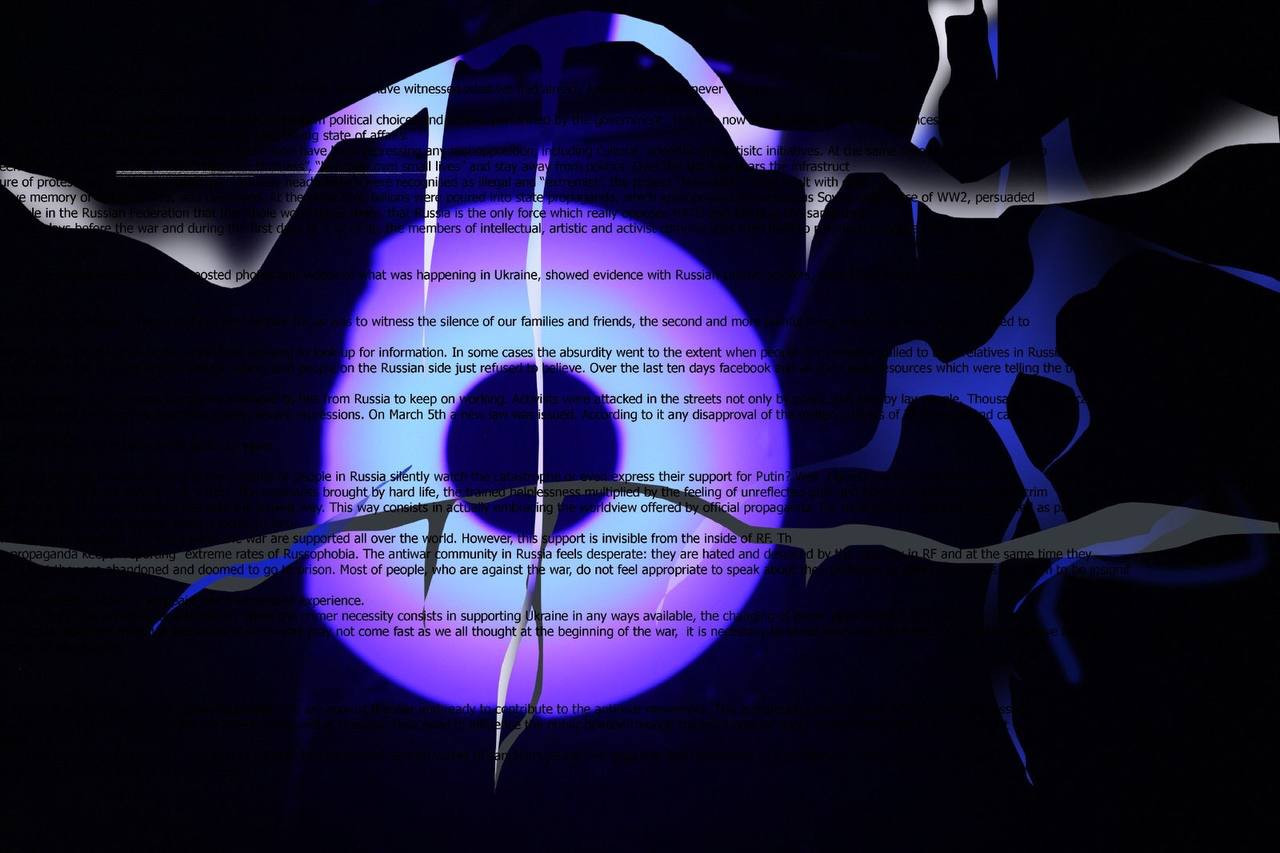Stop the War Using Russian Social Media

Over the last months we, the anti-war movement in all its forms, have witnessed what we had already known but hoped never to experience on such a scale: the majority in Russia is almost completely detached from political choices and actions performed by the government. This has now led to catastrophic consequences and consistent work most be done to change the depressing state of affairs.
For years the government of the Russian Federation have been repressing any real opposition, including cultural, scientific and artisitc initiatives. At the same time the population has been trained to stay passive, “mind their own business”, “live their own small lives” and stay away from politics. Over the last two years the infrastructure of protest was completely destroyed, Navalny headquarters were recognised as illegal and “extremist”, the project “Memorial”, which dealt with collective memory of Gulag victims, was destroyed. At the same time billions were poured into state propaganda, which appropriated the victorious Soviet experience of WW2, persuaded people in the Russian Federation that the whole world hates them, that Russia is the only force which really opposes NATO and China at the same time.
Several days before the war and during the first days of it all of us, the members of intellectual, artistic and activist commuinities tried hard to persuade people around us that the state media lied to them, we posted photos and videos of what was happening in Ukraine, showed evidence with Russian captive soldiers, went to protests, handed out leaflets and pasted antiwar. The first shock and despair for us was to witness the silence of our families and friends, the second and more painful thing was to see how people started to support the actions of Putin while at the same time refusing to look up for information. In some cases the absurdity went to the extent when people from Ukraine called to their relatives in Russia to tell them what is going on and call for action, and people on the Russian side just refused to believe. Over the last ten days facebook and all the media resources which were telling the truth were blocked or closed. Some journalists managed to flea from Russia to keep on working. Activists were attacked in the streets not only by police, but also by lay people. Thousands of politically active subjects have fled to other countries fearing severe repressions. On March 5th a new law was issued. According to it any disapproval of the military actions of RF is illegal and can lead either to a fine or to imprisonment up to 15 years.
So what actually happened? Why is the majority of people in Russia silently watch the catastrophe or even express their support for Putin? Well, I guess, no one would argue that most citizens of RF did not expect such a turn. The weariness brought by hard life, the trained helplessness multiplied by the feeling of unreflected guilt and being accomplice in terrible crime made even the most neutral ones take the easiest way. This way consists in actually embracing the worldview offered by official propaganda. For most citizens the sactions worked as proof that all the world is against them. I perfectly know that those Russians who are against the war are supported all over the world. However, this support is invisible from the inside of RF. The propaganda keeps “reporting” extreme rates of Russophobia. The antiwar community in Russia feels desperate: they are hated and despised by the majority in RF and at the same time they feel that they are abandoned and doomed to go to prison. Most of people, who are against the war, do not feel appropriate to speak about their problems as they rightly consider them to be insignificant comparing to terror and pain which Ukrainians experience.
Why it might be important to deal with it? While the primer necessity consists in supporting Ukraine in any ways available, the changing of public opinion in RF can lead to a quicker ceasefire. Although the result of such work may not come fast as we all thought at the beginning of the war, it is necessary to invest time and effort into changing the passive and helpless attitude of the majority.
It is important to draw Russian-speaking people who are against the war and ready to contribute to the anti-war movement. This is especially acute in case of media and professionals, journalisits and people who are able to write well in Russian. They need to influence the public opinion through the most popular social media and media in Russia: vkontakte, Yandex-zen and odnoklassniki. It is vital to support this movement as with waves of sanctions people will gradually find themselves in a problematic situation where they will be bound to consider various points of view.